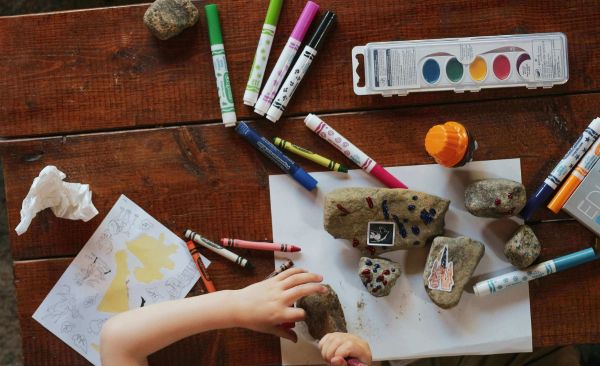By: Shawn English, with ChatGPT (-3.5), Open AI {https://openai.com}
Before we look at the benefits of play therapy, we need to understand that playing is an essential aspect of childhood because this is how, children can explore the world around them, develop social skills, and make sense of their experiences. However, some children have things in their life that can limit the amount of play time they get.
Play therapy is a powerful tool for healing and growth in children. It can progress their emotional and psychological development. Overall play therapy is a very useful therapy for kids because they are already naturally inclined to play.
What Exactly is Play Therapy?
Play therapy is a form of therapy specifically designed for children, having play as the primary mode of communication and expression. Play therapy provides a safe and supportive environment where children can freely express themselves, process their emotions, and work through their difficulties. Unlike traditional talk therapy, which may be intimidating or challenging for children, play therapy offers a better approach that is more engaging.
Principles of Play Therapy:
In order for play therapy to be most effective, there are several principles that are needed:
1. Positivity: The therapist must demonstrate acceptance, empathy, and respect towards the child, regardless of their behaviors or feelings. This creates a safe and non-judgmental space for the child to express themselves freely.
2. Child-Centered Approach: The focus of play therapy is on the child’s needs, experiences, and inner world. The therapist should follow the child’s lead during sessions, allowing them to direct the play and exploration process.
3. Expression of Feelings: Play therapy encourages children to express their emotions through play, as they might lack the verbal skills to explain their feelings directly. Through play, children can externalize and process complex emotions such as fear, anger, or sadness.
4. Therapeutic Relationship: Building a trusting relationship between the child and therapist is crucial in play therapy. The therapist serves as a compassionate witness, providing support, validation, and guidance as the child plays and expresses.
Techniques in Play Therapy:
Play therapy uses a wide range of techniques to meet the unique needs of each child. Some common techniques include:
1. Art Therapy: Using art materials such as crayons, paint, and clay, children can express themselves creatively. Art therapy allows for the exploration of feelings, memories, and conflicts in a non-verbal manner.
2. Sandplay Therapy: In sandplay therapy, children create scenes or narratives using miniature figures and objects in a tray of sand. This technique provides a symbolic space for children to explore and process their inner world, often revealing hidden thoughts and emotions.
3. Puppet Play: Through puppet play, children can explore their thoughts and feelings with puppets, allowing for a sense of distance and safety. Puppet play can be done through storytelling, role-playing, and communication in a playful and imaginative way.
4. Fun Games: Board games, card games, and other activities can be used therapeutically to teach children social skills, problem-solving strategies, and emotional regulation techniques. Games provide structure for learning and engagement while also promoting fun and enjoyment.
Benefits of Play Therapy
Play therapy offers many different benefits for children facing various challenges and difficulties:
1. Emotional Expression and Regulation: Play therapy provides a safe way for children to express and regulate their emotions. By playing, children can process difficult feelings such as anxiety, sadness, or anger in a supportive environment.
Through activities like drawing, painting, or sculpting, children can externalize their emotions and gain a sense of control. This process not only helps children develop resilience but also gives them essential skills that they can use in adulthood.
2. Problem-Solving and Coping Skills: Through play, children learn problem-solving skills, resilience, and adaptive coping strategies. Whether building a fort, navigating a maze, or resolving conflicts between toy figures, children learn to see different perspectives, brainstorm solutions, and adapt their strategies.
These experiences create resilience and confidence, enabling them to confront challenges in their daily lives with determination.
3. Trauma Processing and Healing: For children who have experienced trauma or stress, play therapy offers a gentle and effective approach to processing their experiences and helping them heal. Traumatic memories and emotions are often stored in the body and the unconscious mind, making traditional talk therapy less effective for young children who may have difficulty verbalizing their feelings. Play therapy allows children to make sense of traumatic events through playing, providing a safe place that helps emotional processing without overwhelming them.
4. Enhanced Communication and Social Skills: Play therapy improves children’s communication skills, empathy, and ability to connect with others. Through interactive play activities and role-playing scenarios, children practice verbal and non-verbal communication, perspective-taking, and collaboration.
For children with social difficulties or developmental delays, play therapy provides a structured and supportive environment where they can learn and practice social skills. By engaging in cooperative play, turn-taking, and problem-solving with the therapist and peers, children develop the skills necessary for interactions in school, home, and community settings.
5. Self-Exploration and Identity Development: Play therapy supports children in exploring their sense of self, identity, and values. Through creative expression and imaginative play, children can explore different aspects of themselves and develop a stronger sense of self-awareness and self-esteem.
Whether role-playing as superheroes, animals, or fantasy characters, children experiment with different roles, behaviors, and identities, gaining insight into their strengths, preferences, and personal values. This process of self-exploration and development creates the foundation for self-confidence, allowing children to navigate challenges with authenticity and integrity.
By going through the benefits of play therapy, we find that it is a very valuable and effective way of supporting the emotional, psychological, and social development of children. By using the natural inclination for children to play, play therapy allows children to freely express themselves and their feelings.
Play therapy provides children with a safe and supportive space to process their emotions, and develop essential life skills. Overall, play therapy is a very powerful form of therapy for kids.
Begin Play Therapy For Your Child in Boulder, CO
You don’t have to dread the changing of the seasons. Our team of trained therapists can provide you with the support to help your child navigate and express their emotions better through playing and interaction.
- Contact our therapy center to request an appointment.
- Learn more about our therapists and play therapy
- Start play therapy with us.
Related Reads




